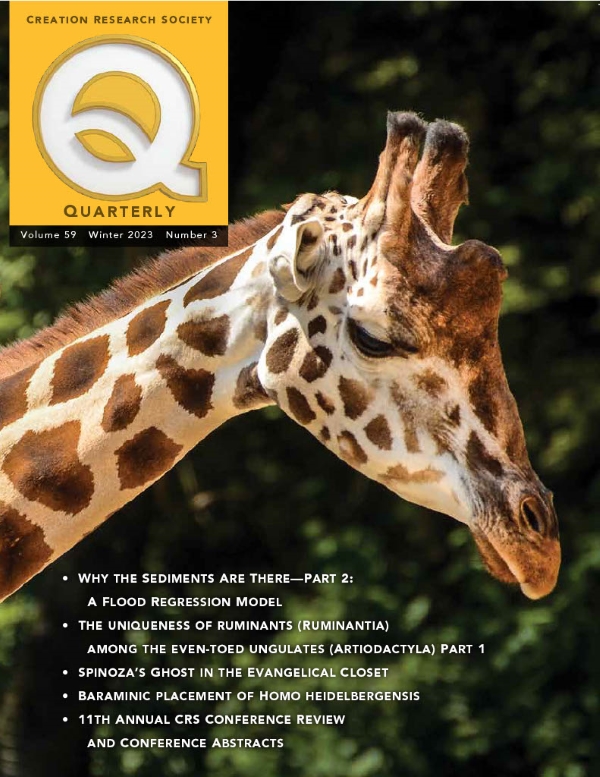
ABSTRACTS
Scientists, the media, and the courts routinely reject critiques of evolutionary ideas by arguing that such critiques are religious. Conversely, critiques of the straightforward reading of Genesis texts assert that such texts are not scientific. We show that this situation developed from the ideas of Baruch Spinoza, a 17th-century philosopher who argued that philosophy (including science) must be separated from theology. For him, the goal of philosophy is to determine truth, while the goal of theology is piety. Spinoza correspondingly denied the supernatural inspiration of Scripture and developed his own philosophy, which can be identified as a form of pantheism. Spinoza’s ideas strongly influenced the Enlightenment and maintain a grip on intellectuals to the present. A pantheism similar to Spinoza’s is now effectively an established religion in our culture. This pantheism masquerades as science, while denying any supernatural deity. Spinoza’s legacy in today’s society is consequently a conflict between two religions: pantheism versus Biblical Christianity. Christians should recognize this influence and eschew compromises with pantheistic religion.
